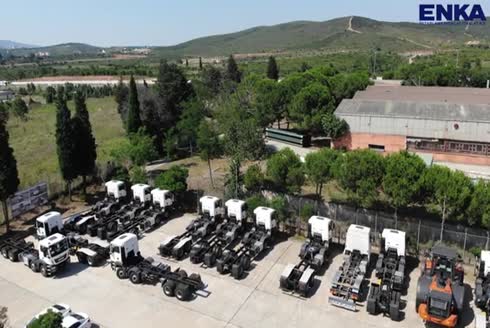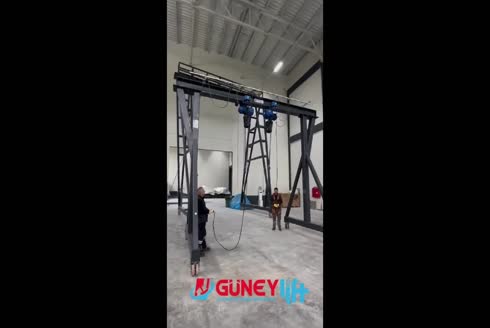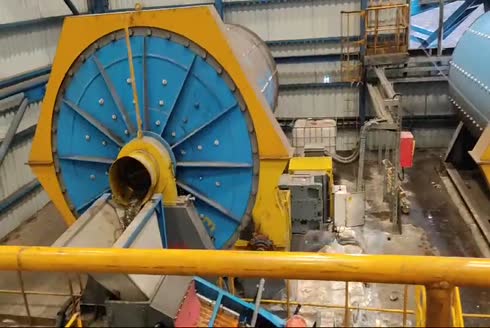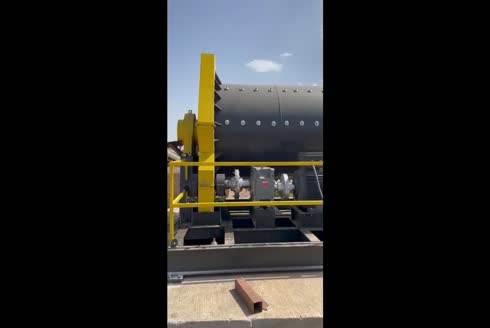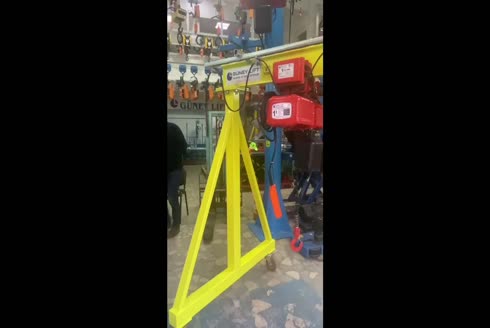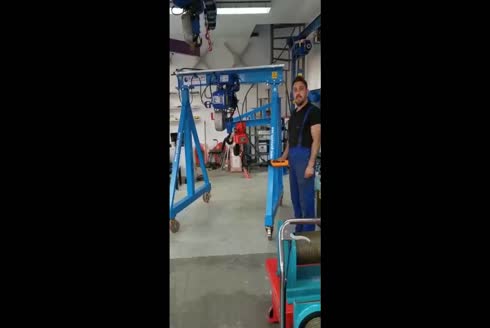Mobile Mechanical Asphalt Plant

Mobile Mechanical Asphalt Plant
A portable plant system used for asphalt production. This plant mixes all necessary materials (sand, stone, bitumen, filler) to produce high-quality asphalt. Its mobility offers ease of use and quick transportation, saving time and costs in projects.
Working System:
-
Mechanical Mixing: The asphalt plant uses mechanical mixing systems to produce a high-efficiency asphalt mix, typically done with stationary and rotating mixers.
-
High Mixing Quality: Asphalt mix is continuously and homogeneously blended, ensuring superior quality.
Heating and Bitumen System:
-
Bitumen Heating System: Specialized heating systems ensure bitumen maintains the correct temperature for efficient asphalt production.
-
Sand and Stone Heating: Mobile asphalt plants include heating systems to maintain sand and stone at proper temperatures for effective mixing.
Raw Materials and Mixing:
-
Main Materials: Sand, stone, filler, and bitumen are mixed in specific ratios to produce asphalt.
-
Mix Ratio Control: Automatic systems precisely control mix ratios, ensuring consistent quality in every production cycle.
Portability:
-
Modular Design: Mobile asphalt plants are typically modular, enabling easy transportation and setup.
-
Chassis and Transportation: The plant can be transported on a trailer or its chassis, allowing for rapid deployment and setup at different project sites.
Energy Efficiency:
Modern mobile asphalt plants feature energy-efficient systems. The heating systems are designed to minimize energy consumption.
Control and Monitoring System:
-
PLC-Controlled System: Automatic control systems monitor and optimize the asphalt production process, ensuring efficient operations and user oversight at every stage.
-
Digital Displays and Sensors: Parameters like asphalt mix temperature, moisture levels, and other details are monitored via digital screens and sensors.
Eco-Friendly Technologies:
-
Low Emissions: Eco-friendly technologies minimize emissions, ensuring compliance with environmental regulations and reducing the plant's ecological footprint.
-
Dust Control Systems: Dust collection and release are managed to prevent environmental pollution.
Applications:
-
Road Construction and Repair: Used for asphalt production in major road projects, including new construction and asphalt renewal of old roads.
-
Urban Construction Projects: Ideal for roads, intersections, and parking lots within cities.
-
Rapid and Temporary Asphalt Production: Enables quick asphalt production at project sites, suitable for urgent road construction or repair needs.
-
Highway and Bridge Construction: Suitable for large-scale highway projects with high capacity.
-
Industrial Areas and Factories: Used for asphalt production in factory zones, logistics centers, and warehouse construction.
Advantages:
-
Portability and Quick Setup: Easily transported to project sites and quickly installed.
-
Low Operating Costs: Modern energy-efficient systems reduce operating expenses.
-
Eco-Friendly: Low emissions and dust control systems make it environmentally friendly.
-
High Efficiency: Ensures consistent production of high-quality asphalt.
-
Flexibility: Capacity and equipment can be adjusted to suit different projects.



